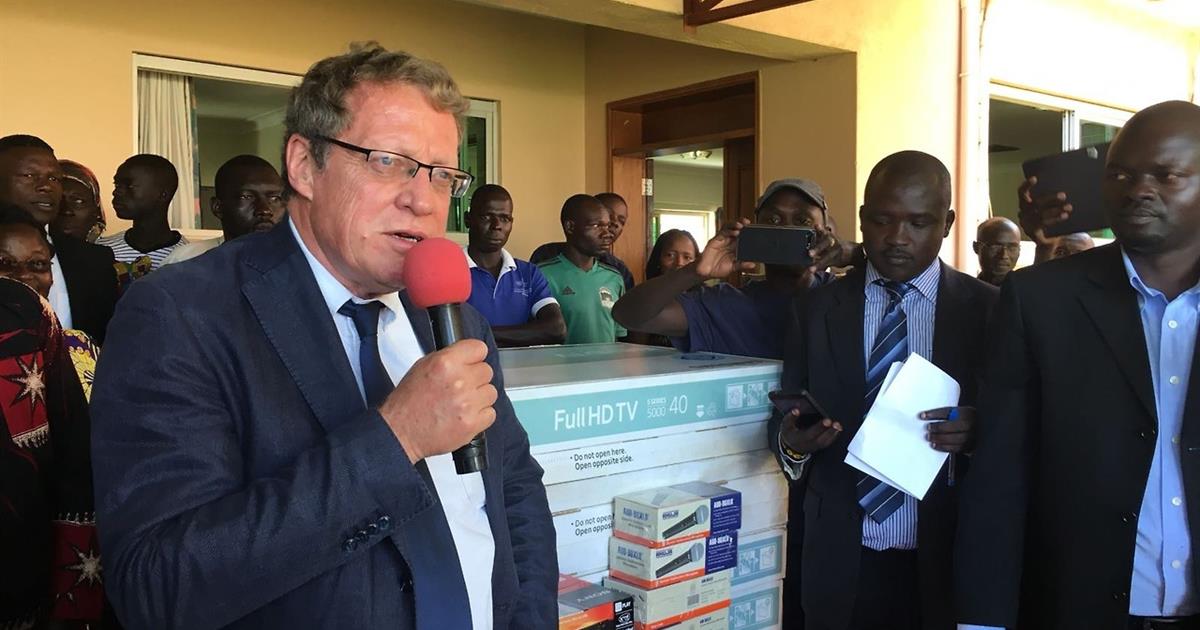The ICC is a home for justice. It is a court of last resort, so countries have the first responsibility to address crimes. The ICC may step in only when a country can't or won't.
The Court aims to promote access to justice in three ways: knowledge, physical access and legal access. Explore to find out more.
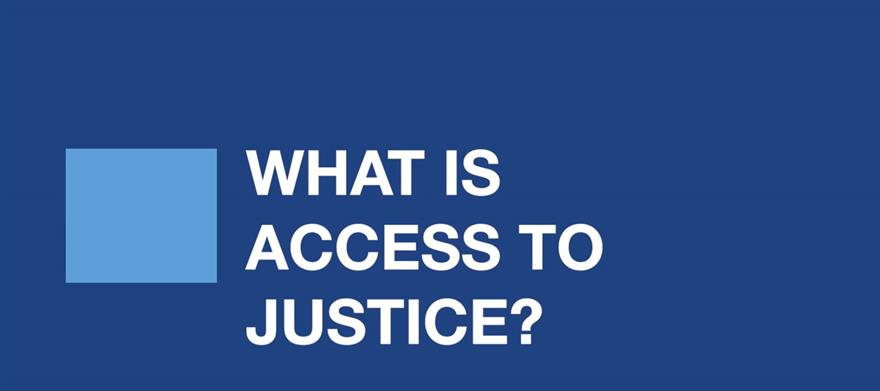
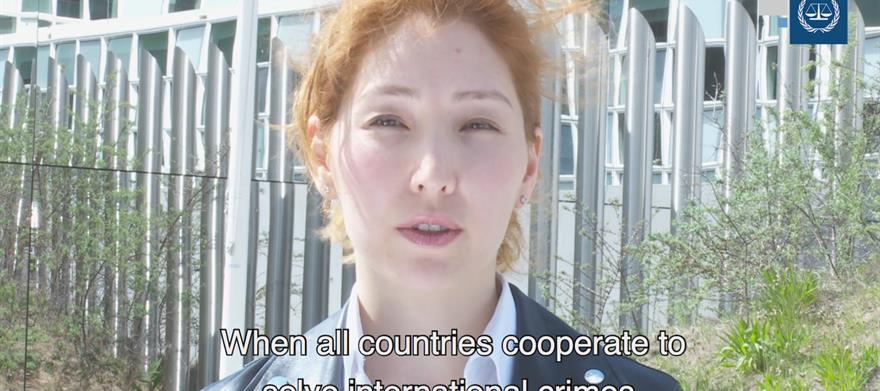
Knowledge as power: Access to information
Access to justice starts with knowledge. Knowledge of your rights. Of the justice system, both at home and internationally. Of how to make your voice heard. At the ICC, we prioritize getting information and knowledge to the people so they can be empowered to take part in the justice process and help others to do so.
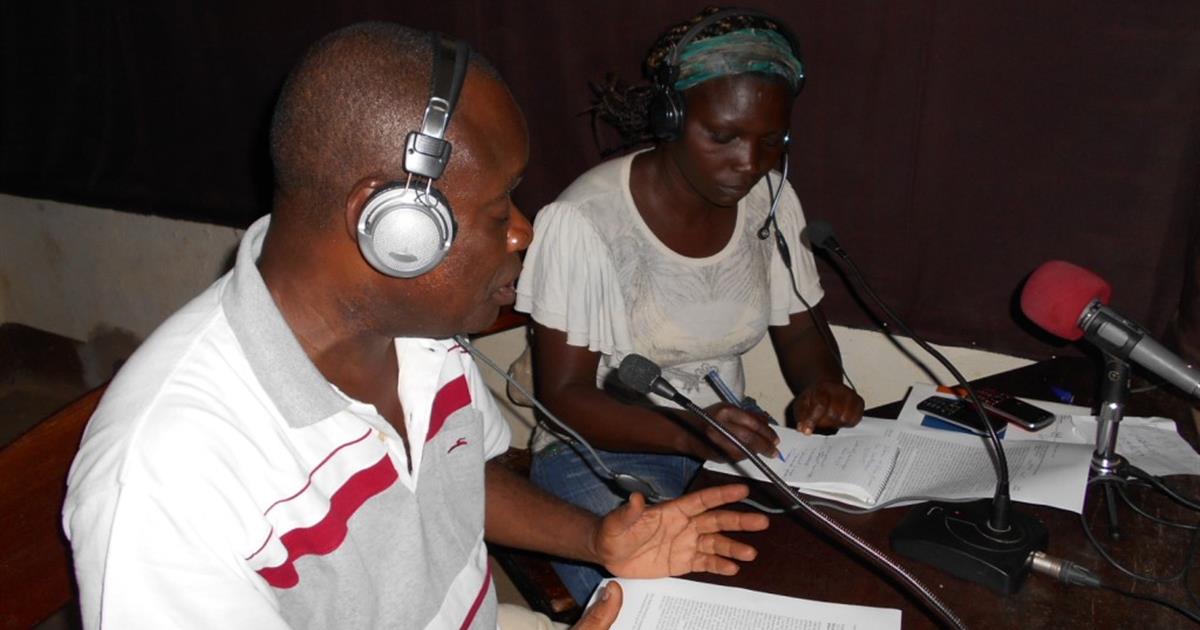
Heart to heart with listeners on Bunia’s Radio Canal Révélation
Journey to justice: Physical access
Once you know your rights, you can take the first steps on your journey to justice. You want to see justice happen with your own eyes and take part. But how is this possible if the Court is far from where you live? Explore how the ICC brings the Courtroom closer to the people.
In the Courtroom: Legal access
Ultimately, access to justice means legal access. Legal representation in the Courtroom. Fair trials in which all those in the Courtroom contribute to the justice process. Having your voice be heard through your lawyer. As a Court of last resort, the ICC can offer recourse to justice when there is no other means.

The ICC's 18 judges are elected by the Assembly of States Parties for their qualifications, impartiality and integrity, and serve 9-year, non-renewable terms. They ensure fair trials and render decisions, but also issue arrest warrants or summonses to appear, authorize victims to participate, order witness protection measures, and more.
Learn more

The Office of the Prosecutor (OTP) is an independent organ of the Court. It is responsible for examining situations under the jurisdiction of the Court where genocide, crimes against humanity, war crimes and aggression appear to have been committed, and carrying out investigations and prosecutions against the individuals who are allegedly most responsible for those crimes.
Learn more
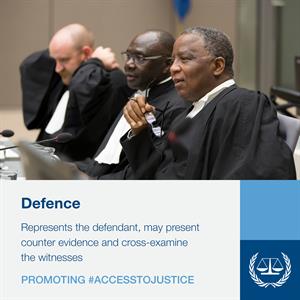
A strong defence is a vital component of a fair trial. The Defence teams represent and protect the rights of the defendant (suspect or accused).
Learn more

Legal representative of victims represent participating victims' interests and ensure victims' voices are heard in Court.
Learn more
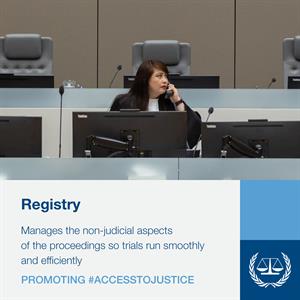
The Registry is a neutral organ of the Court that provides services to all other organs so the ICC can function and conduct fair and effective public proceedings.
Learn more

Victims are those who have suffered harm as a result of the commission of any crime within the jurisdiction of the Court.
Learn more
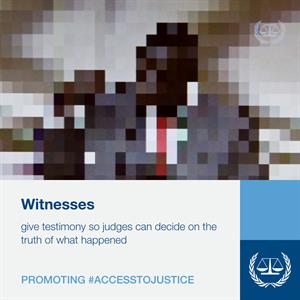
There are several types of witnesses who can testify before the Court.
Learn more
